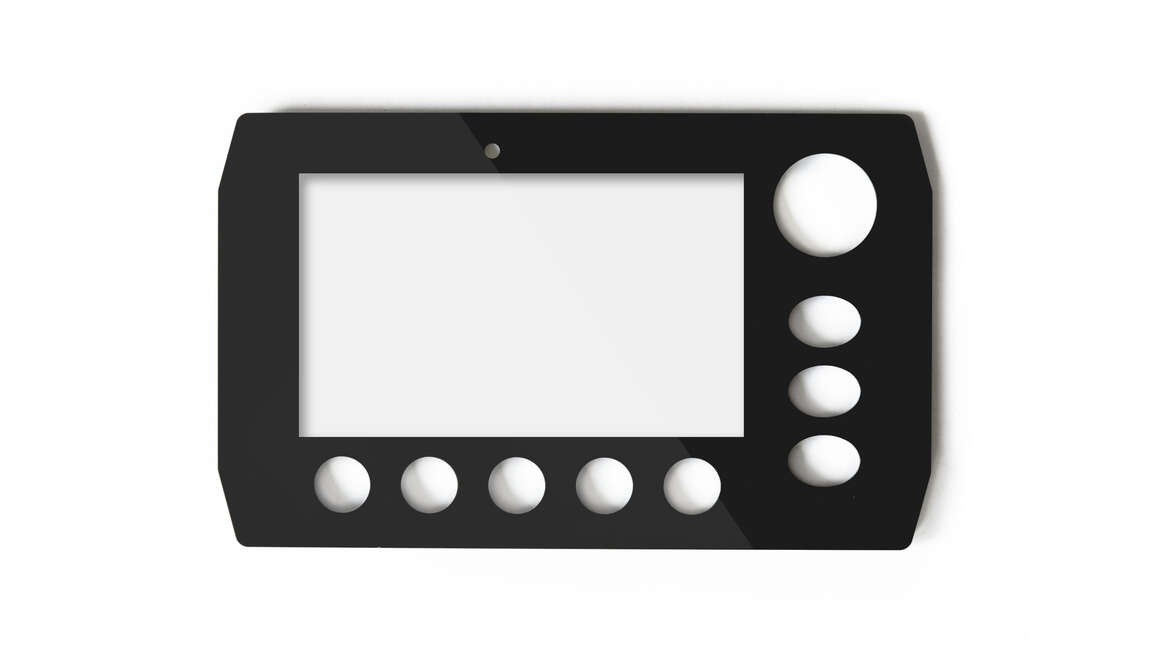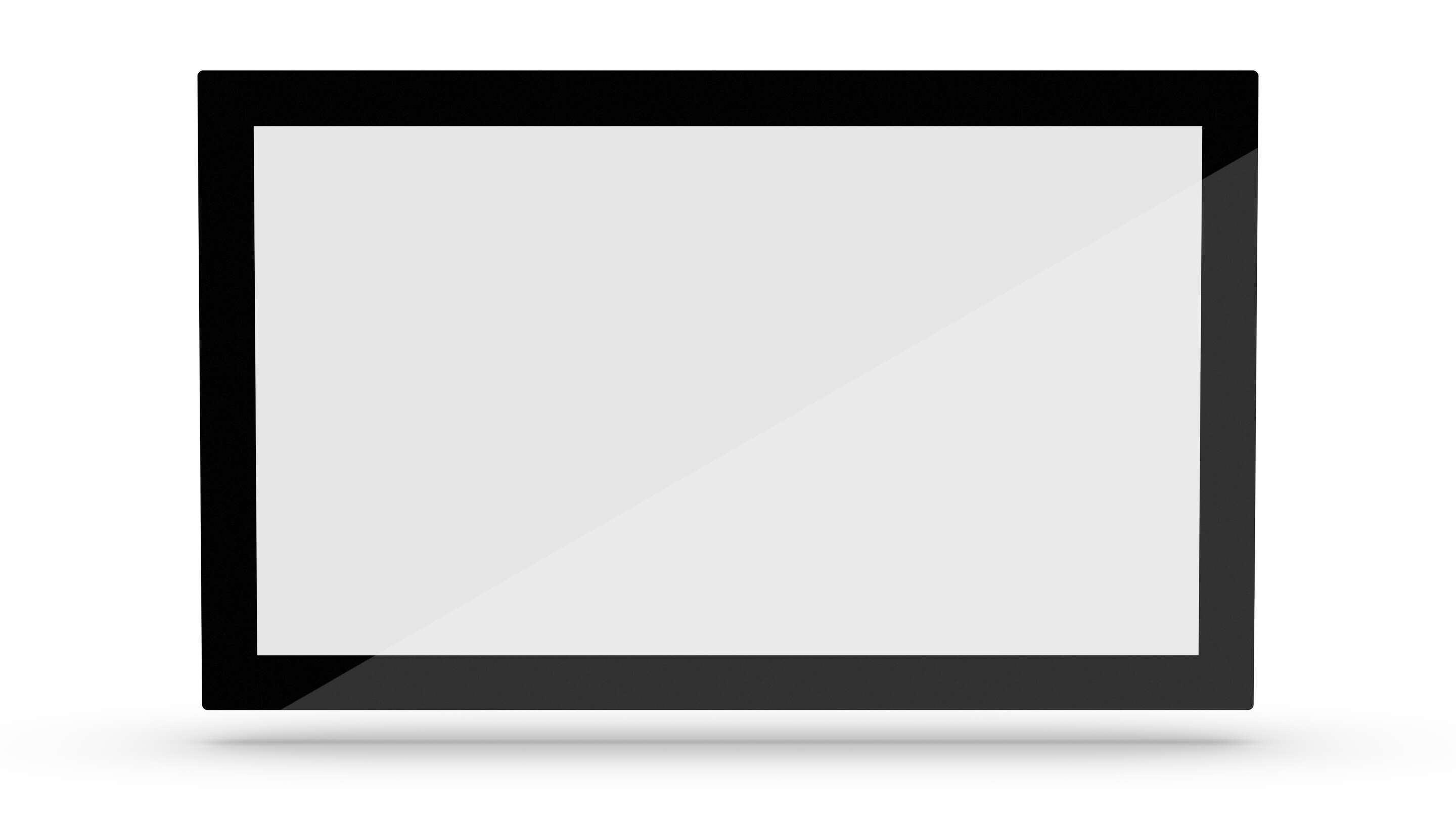
##Vorteile of Polycarbonate Surfaces
Very sturdy
Polycarbonate - surfaces are highly resistant to mechanical stress and do not create splinters in case of damage. As a result, they are preferably used in applications that are at risk of vandalism, such as kiosk systems, or in applications such as handhelds, which can often fall to the floor and therefore require a robust and splinter-free protective surface.
Highly heat-resistant
Another advantage of polycarbonate surfaces is the very high temperature resistance. They can be used in temperature ranges from -90°C up to +135°C without being damaged. This means that they even exceed the temperature tolerance of borosilicate glass.
High optical quality
While almost all thermoplastics have only limited optical quality, polycarbonate has excellent optical properties and a high level of transparency that is retained for a very long time.
##Nachteile of Polycarbonate Surfaces
Polycarbonate has only limited resistance to chemicals or cleaning agents. Frequent contact leads to the surface being attacked and the optical quality and transparency of the material being impaired.
